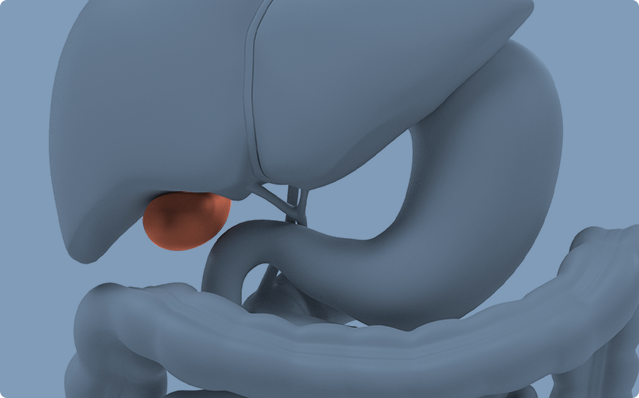
Gallbladder Removal (Cholecystectomy)
What is Gallbladder Removal (Cholecystectomy)?
Cholecystectomy is the procedure to remove the gallbladder. This procedure can be done either via traditional open surgery (open cholecystectomy), which requires a large incision; or laparoscopic cholecystectomy, which is a minimally invasive form of gallbladder removal surgery that results in less pain, fewer scars and quicker recovery.
Why is Gallbladder Removal (Cholecystectomy) Done?
Cholecystectomy is a gallstones removal procedure that is primarily done to treat symptoms of gallstones such as persistent pain and nausea. It is also the most effective way to prevent gallstones from recurring. In suitable cases, a gallbladder removal surgery may also be recommended to treat gallbladder cancer.
Who Should Not Have Gallbladder Removed?
Not all cases of gallstones warrant undergoing a Singapore gallbladder surgery or cholecystectomy, such as if they are asymptomatic. In general, most people with gallstones do not present with symptoms and hence do not require treatment.
Who Performs the Gallbladder Removal Surgery (Cholecystectomy)?
Cholecystectomy surgery is performed by a general surgeon with subspecialty expertise in gastrointestinal surgery or hepatopancreatobiliary surgery (includes gallbladder surgery), such as Dr Wong Jen San.
What are the Risks of a Gallbladder Removal (Cholecystectomy)?
When performed by an experienced gallbladder surgeon in Singapore, a cholecystectomy is considered a very safe and common procedure. As with all surgical procedures, however, there are still some risks involved, which includes:
- bleeding
- infection
- bile leak
- injuries to the liver, bile duct, and small intestine
- injuries to the blood vessels, bowel, and intestines
What Happens Before, During & After a Cholecystectomy Procedure?
Before
During
After
How Long Does a Cholecystectomy Take?
Usually, it will take about 45 minutes to an hour to complete a cholecystectomy.
Will I Be Asleep During a Cholecystectomy?
Cholecystectomy is performed while the patient is under general anaesthesia, which means they are asleep during the surgery and will not feel any pain.
Are There Any Long-term Effects of Gallbladder Removal?
People without a gallbladder can live normally; however, the patient may experience some minor side effects for 3 to 6 months after a cholecystectomy. These may include diarrhoea, food intolerance, gas or flatulence.
What Should My Diet Be After a Cholecystectomy?
Patients who have undergone a cholecystectomy do not need to adhere to any specific diet, but are advised to minimise consuming foods that are fatty and greasy.

Upon graduating from the University of Leicester and completing his basic surgical training in the United Kingdom, Dr Wong went on to complete advanced training in Singapore before embarking on his HMDP clinical fellowship in Japan—specializing in living donor liver transplantation.
Prior to establishing his own practice, Dr Wong was previously a consultant with the Department of Hepatopancreatobiliary & Transplant Surgery at SGH, an adjunct assistant professor at the Duke-NUS Graduate Medical School and a visiting consultant at the National Cancer Centre Singapore.
Read more
is a Complex and Intricate One

